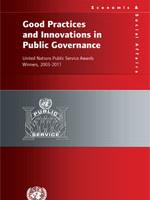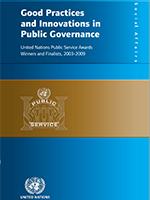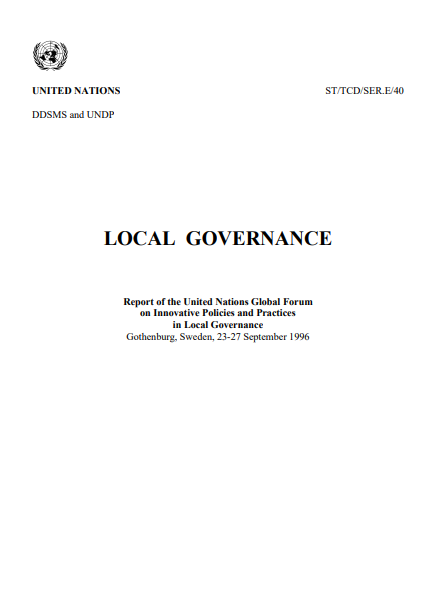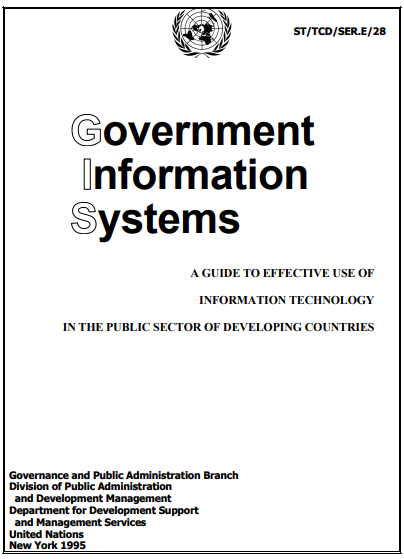| Policy Briefs | Digital Government | Open Government Data
UN/DESA Policy Brief #89: Strengthening Data Governance for Effective Use of Open Data and Big Data Analytics for Combating COVID-19
Strengthening Data Governance for Effective Use of Open Data and Big Data Analytics for Combating COVID-19
Summary
Governments are highly dependent on all data including official statistics, administrative data, open data and big data analytics…
| Policy Briefs | Transformational Leadership and New Mindsets
The Role of Public Service and Public Servants during the COVID-19 Pandemic
Key messages:
1. Comprehensive public service capacity development: Governments must pay attention to developing the capacities of the public service and public servants; be it in their numbers, their competences, values, the protective gear…
| Policy Briefs | Public Institutions
COVID-19: Reaffirming State-People Governance Relationships
The emergence and spread of the coronavirus in late 2019 and the impact of its disease, COVID-19, which has been categorized by the World Health Organization as a global pandemic, is, at the time of writing, ongoing.
Efforts by governments to…
| Policy Briefs | Participation and Accountability | Public Institutions
Resilient Institutions in Times of Crisis: Transparency, Accountability and Participation at the National Level Key to Effective Response to COVID-19
National institutions are strongly impacted by the coronavirus (COVID-19). The pandemic has disrupted to varying extents the regular functioning of state institutions, such as parliaments and justice systems, and affected key government functions…
| Policy Briefs | Digital Government
COVID-19: Embracing Digital Government During the Pandemic and Beyond
The COVID-19 pandemic is forcing governments and societies to turn toward digital technologies to respond to the crisis in the short-term, resolve socio-economic repercussions in the mid-term and reinvent existing policies and tools in the long-term…
| Good Practices and Innovations in Public Governance | Public Service Innovation
Good Practices and Innovations in Public Governance
This publication provides an overview of 145 successful innovations in governance and public administration from 50 countries that received the United Nations Public Service Awards, which is the most prestigious international recognition of…
| Good Practices and Innovations in Public Governance | Public Service Innovation
Good Practices and Innovations in Public Governance: United Nations Public Service Winners 2003 - 2009
This publication provides an overview of 85 successful innovations in governance and public administration from 40 countries that received the United Nations Public Service Awards, which is the most prestigious international recognition of…
| Good Practices and Innovations in Public Governance | Public Service Innovation
Innovations in Governance in the Middle East, North Africa, and Western Balkans: Making Governments Work Better in the Mediterranean Region
Innovations in Governance in the Middle East, North Africa, and Western Balkans: Making Governments Work Better in the Mediterranean region leads us through the journey of innovation by analysing the challenges and opportunities that governments in…
| Publications
Administrative Reforms: Country Profiles of Five Asian Countries
In recent years, many countries have undertaken administrative reform as a crucial step towards strengthening their economy and better management of their social development. The state is still playing a key role in the change management of nations…
| Publications | Local Governance
Local Governance- Report of the United Nations Global Forum on Innovation Policies and Practices in Local Governance
Discussions about innovative aspects of the relationship between central and local government (with a view to decentralization and strengthening the mobilization of civil society) are critical to the practical implementation of the Agenda for Peace…
| Publications | Digital Government
Government Information Systems
Inexpensive and powerful microcomputers, telecommunications technologies, and information systems have become an essential element of the development process of developing countries. Information systems for governance and public administration, as…
 مرحباً بكم في الأمم المتحدة
مرحباً بكم في الأمم المتحدة 










